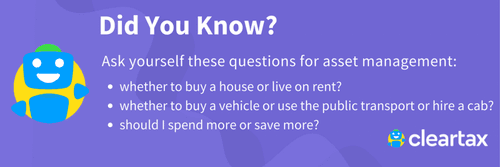Learn more about crypto with this collection
How to build confidence
How to connect with people on a deeper level
How to create a positive first impression
Agrressive Fin planning
Having a personal balance sheet helps to know what you own and what you owe! It’s a pretty powerful tool to take your finances to the next level. It’s a statement wherein you can jot down your assets and liabilities. The difference between your assets and liabilities shows your personal Net Worth. Before getting started, pull together your bank statements and other proofs of the liabilities. Then list down your assets like the bank balance, all investments, home value, and value of other assets. Take a sum of all the assets to arrive at the total value of your assets. Afterward list down your liabilities like the car loan, home loan, credit card balances and remaining balances in other loans. The sum of all the liabilities will show the value of the money you owe.
When you subtract the value of liabilities from assets, you get your Net Worth. Ideally, it needs to be positive which means money you own is greater than the money you owe. Don’t lose heart if it’s negative. As you keep repaying your loans, your Net Worth is going to increase gradually. Yet another critical thing in asset management is what kind of assets you need to own. You must always try to own those assets which increase in value and involve the lesser cost of maintenance.
In the end, it’s all about how much can you really use. Simply accumulating things which you don’t need leads to blocking money in unproductive stuff. It’ll be wise to be aware of what you actually use and what you can get rid of.
Constructing your first investment portfolio is an achievement in itself. After all, it is your first step towards wealth accumulation.
Building a portfolio involves distributing your investment amongst asset classes like equity, debt, and cash. It is known as asset allocation. Although equity is the best tax-efficient and inflation countering vehicle. However, putting all your money in equity isn’t a prudent move. You need to diversify the sums that are to be allocated in each asset class as per your investment goals. It is always wiser to be a long-term investor in order to accumulate greater corpus. Your investment horizon would ideally be around 10-15 years.
Once you have constructed a portfolio, you need to rebalance it periodically to keep the portfolio risk within expected limits. This is relevant from standpoint of market fluctuations. At the very outset, you may decide the time intervals after which you will be rebalancing. You can do it once in every six months or a year.
Lack of debt management may eat up a major part of your paycheck. You may end up borrowing fresh loans to pay off older loans. If it gets out of control, then you may fall in a vicious debt trap. Your critical life goals may get sidelined and even your retirement may get delayed. However, strategizing your debt payment may keep you away from such troubles. All you need is being informed about how much you owe to whom. And chalk out a schedule to pay them off.
In case you have a lot of debt to shoulder, start paying off the most expensive one. In fact, the credit card has been regarded as the most expensive form of debt. As soon as your salary gets credited each month, pay off your credit card balances in full. Don’t fall for the lure of paying off the minimum balance. Even before you know, the interest will spiral up to eat out all your savings. Make it a point to use the credit card only in case of emergency. Always keep debt as the last resort. As far as possible, make down payments for your purchases.
In case you are shouldering big-ticket loans, look for portability option. You can transfer your loan to another bank offering a lesser rate of interest. In this manner, you will save a lot of money going out as interest. Never borrow for assets which are depreciating. Additionally, tax-inefficient loans like personal loans can be avoided as far as possible. You can think of saving and building a corpus to fulfill your goals. In this way, you can avoid falling into debt trap.
Believe it or not! each one of us has an estate. Whether it’s your vehicle or your home; the cash lying in your saving and current account, every asset constitutes an estate. It’s your responsibility to decide what happens to these after you leave this world. You need to ensure that the right asset is assigned to the appropriate individual in the right manner. Ultimately, you need to think about estate planning.
1
4 reads
IDEAS CURATED BY
Other curated ideas on this topic:
Read & Learn
20x Faster
without
deepstash
with
deepstash
with
deepstash
Personalized microlearning
—
100+ Learning Journeys
—
Access to 200,000+ ideas
—
Access to the mobile app
—
Unlimited idea saving
—
—
Unlimited history
—
—
Unlimited listening to ideas
—
—
Downloading & offline access
—
—
Supercharge your mind with one idea per day
Enter your email and spend 1 minute every day to learn something new.
I agree to receive email updates
